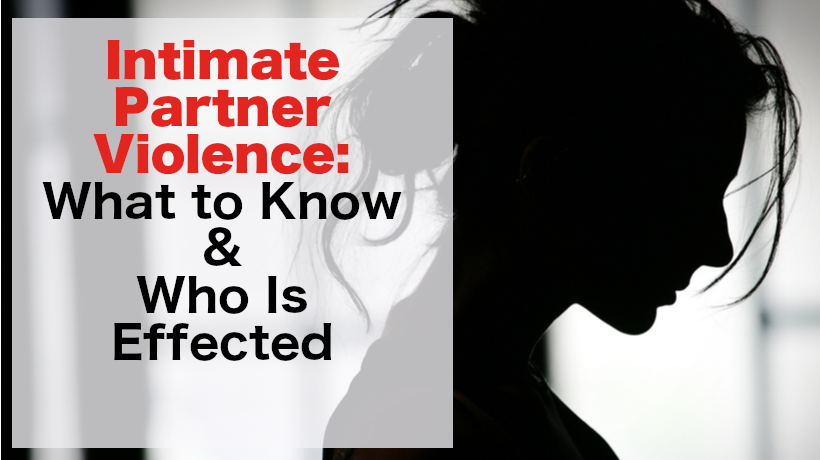Intimate partner violence (IPV) can vary in how often it happens and how severe it is. It may have lasting psychological or physical effects on us as well. Here’s what you should know:
What is intimate partner violence (IPV)?
The CDC defines intimate parnter abuse as, “abuse or aggression that occurs in a romantic relationship.” “Intimate partner” refers to both current and former spouses and dating partners. IPV can vary in how often it happens and how severe it is.
According to the CDC, IPV can include any of the following types of behavior:
- Physical violence– when a person hurts or tries to hurt a partner by hitting, kicking, or using another type of physical force.
- Sexual violence– when someone is forcing or attempting to force a partner to take part in a sex act, sexual touching, or a non-physical sexual event (e.g., sexting) when the partner does not or cannot consent.
- Stalking– a pattern of repeated, unwanted attention and contact by a partner that causes fear or concern for one’s own safety or the safety of someone close to the victim.
- Psychological aggression – the use of verbal and non-verbal communication with the intent to harm another person mentally or emotionally and/or to exert control over another person.
Am I alone in suffering from IPV?
No, according to the CDC it affects millions of people in the United States each year. Data from CDC’s National Intimate Partner and Sexual Violence Survey (NISVS) indicate that about 1 in 4 women and nearly 1 in 10 men have experienced contact sexual violence, physical violence, and/or stalking by an intimate partner during their lifetime and reported some form of IPV-related impact.
Am I at risk for IPV?
The CDC claims those who any of the below applies to may have an individual risk for IPV:
- Low self-esteem
- Low income
- Low academic achievement/low verbal IQ
- Young age
- Aggressive or delinquent behavior as a youth
- Heavy alcohol and drug use
- Depression and suicide attempts
- Anger and hostility
- Lack of nonviolent social problem-solving skills
- Antisocial personality traits and conduct problems
- Poor behavioral control/impulsiveness
- Traits associated with borderline personality disorder
- History of being physically abusive
- Having few friends and being isolated from other people
- Unemployment
- Emotional dependence and insecurity
- Belief in strict gender roles (e.g., male dominance and aggression in relationships)
- Desire for power and control in relationships
- Hostility towards women
- Attitudes accepting or justifying IPV
- Being a victim of physical or psychological abuse (consistently one of the strongest predictors of perpetration)
- Unplanned pregnancy
Can I prevent IPV?
Certain relationship factors such as high friendship quality and social support may help prevent IPV. Community factors such as, neighborhood collective efficacy (community cohesiveness/support/ mutual trust, and willingness to intervene for the common good) may also help prevent IPV.
See Intimate Partner Violence Resources for more publications and resources about preventing intimate partner violence.
Source:



